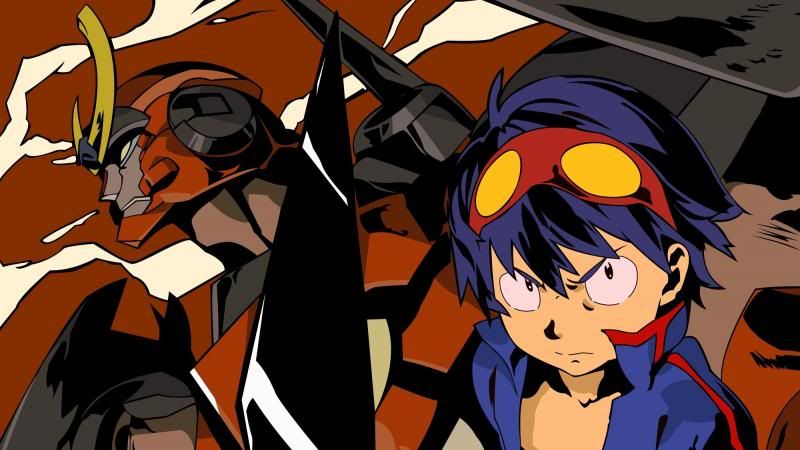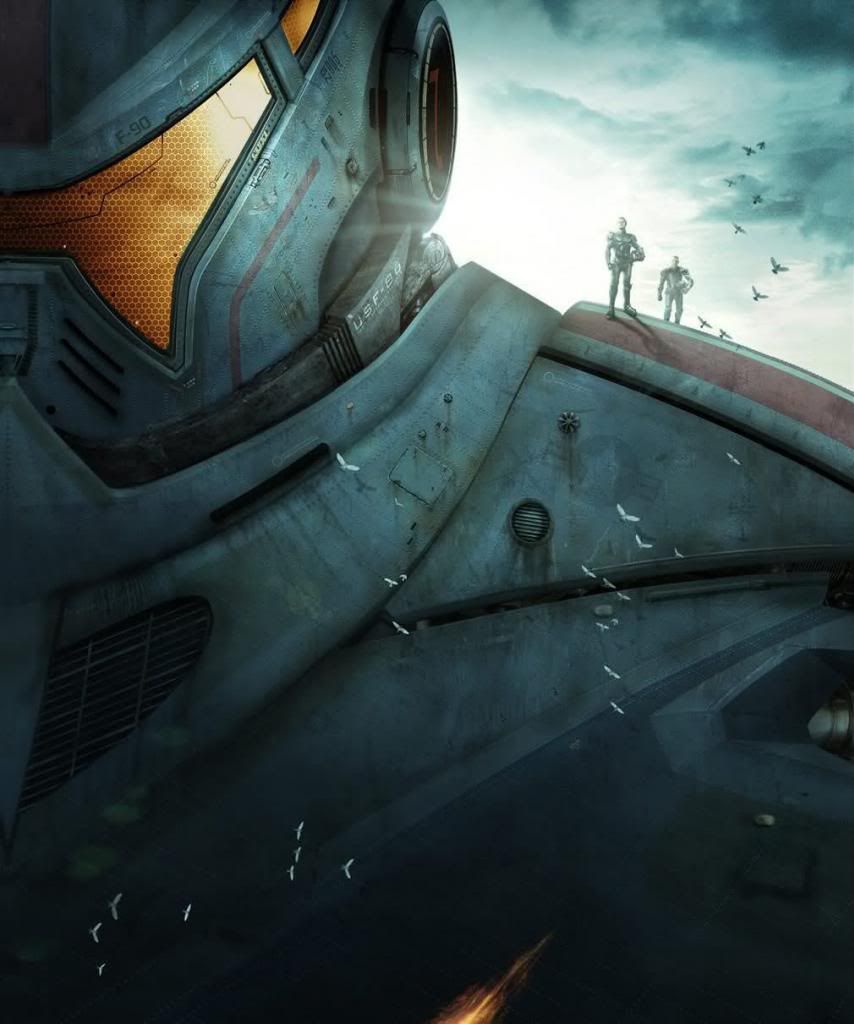Watching Gurren-Hen last night, I come back to the reasons why I fell in love with Gurren Lagann in the first place. I want to revisit that.

Courtesy Rabbitpoets, will credit original artist!
When I encounter a new story that I find myself enjoying thoroughly, there’s a part of me that can’t just leave it at that. I have to look deeper than my superficial glee and take a look at what really calls to me about the tale. I have to examine characters, plot points, meanings and development. I don’t know if it’s my background in doing so for years at university, or my desire to better understand other stories so I can write mine better, but in any case, it’s what makes me review and critique stuff on a regular basis.
Case in point: I just finished watching the anime series Tengen Toppa Gurren Lagann and I enjoyed the hell out of it.
I’m no stranger to big robot anime. Voltron and Robotech (Macross in particular) were staples growing up. When I hit university I was introduced to more – Macross Plus, Gundam Wing and the brilliant but bizarre Neon Genesis Evangelion. There are plenty of other mecha anime out there, and plenty of anime that get classified as shounen – aimed primarily at young or teenage boys with exciting action and plenty of fighting. One might think, with a cursory glance, that Gurren Lagann is in the same vein as these, even with its unique aesthetic, but it doesn’t take long for the series’s true strengths to reveal themselves.
In a few other series I’ve dipped my toe into and even enjoyed, the main character gets his special power or destiny, and pursues it with dogged determination that, while admirable, does not vary his character much. Gurren Lagann, on the other hand, lets its characters develop naturally. The character of Simon, in particular, goes through a lot of growth from the beginning of the series to its end. In addition to the respect I give a story for the willingness to actually end legitimately and well, there’s the fact that the Simon at the end of the story is a different person, a more developed person, than he was at the beginning. The same goes for Yoko; a character that easily could have been relegated to simple fan service is also allowed to grow, breathe, develop, and take on a life of her own.
Another way in which the series sets itself apart is in the fact that actions have consequences. Each victory that our heroes gain take them deeper into a world they did not anticipate, and as much as the show likes to treat the laws of physics more like loose guidelines than actual rules, there’s no cheap resurrections and no going back. Changes are irreversible, and consequences must be dealt with. In a general genre and specific sub-genre that is usually all about an empowerment fantasy free of consequences, seeing a show that drops the hammer on its character multiple times for things they do is refreshing.
As cool as it would be to pilot a giant mecha, Gurren Lagann seems to treat its unique and strikingly designed machines as exactly what they are: vehicles. They’re the means by which the story and its meaning are delivered, and the meaning is this: it’s okay to be yourself. In fact, the ideal way to live one’s life is to forge ahead making one’s own destiny with a sense of self-belief. Believing in yourself can be hard to do, especially when it feels like the whole world is against you, but when people have faith in you, and you have faith in yourself, there is literally nothing you can’t do. Rather than relegate such things to occasional character moments or after-credits messages, Gurren Lagann makes this the driving force behind its narrative, a massive drill that bores a hole right through your expectations. The individual’s sense of self-worth is a weapon in and of itself; when fully realized, it’s an extremely potent one.
I may be reading too much into an anime series, or drawing an inordinate amount of inspiration from it, but that’s who I am. I take the lessons I find from what I experience and I try to make them a part of my life. I am, as always, a work in progress. I will never stop learning, never stop growing, and never stop writing about it. That’s what I do. And the more I do it, the more proud I become of what I’m doing and what I will do in the future. I may not live up to some expectations, I may make mistakes, but I will make my future my own, because that’s what you do when you come to realize who you are and what that means to you and to the world around you.
I’m a writer. I’m a fanboy. I’m a critic and a philosopher and I fight for what I believe in.
Who the hell do you think I am?




